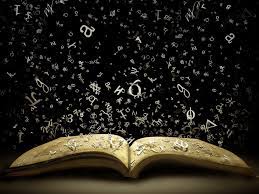The Evolution of British Science Fiction Novels: A Journey into the Realm of Imagination
Welcome to our website dedicated to the development of British science fiction novels! In this article, we will take you on a captivating journey through time, exploring the rich history and evolution of science fiction literature in Britain. From visionary classics to modern masterpieces, we will delve into the fascinating world of British science fiction and its impact on the genre.

- The Early Pioneers:
The roots of British science fiction can be traced back to the 19th century, where a few visionary authors laid the foundation for the genre. Key pioneers include:
- Mary Shelley: Shelley’s groundbreaking novel “Frankenstein” (1818) introduced the concept of scientific experimentation and the moral implications of playing god.
- H.G. Wells: Often referred to as the “father of science fiction,” Wells’s works, such as “The Time Machine” (1895) and “The War of the Worlds” (1898), explored futuristic ideas and the potential consequences of technological advancements.
- Golden Age and Beyond:
The mid-20th century marked a significant period for British science fiction, with an explosion of imaginative works that shaped the genre. Key authors and works include:
- Arthur C. Clarke: Known for his seminal novel “2001: A Space Odyssey” (1968), Clarke blended science and philosophy to create thought-provoking narratives that pushed the boundaries of human knowledge and exploration.
- Brian Aldiss: Aldiss’s “Non-Stop” (1958) and “Hothouse” (1962) showcased his vivid imagination and ecological themes, while “Helliconia” (1982-1985) presented a complex world influenced by astronomical phenomena.
- J.G. Ballard: Ballard’s works, such as “The Drowned World” (1962) and “Crash” (1973), explored dystopian landscapes, psychological aspects of technology, and the human condition in extreme environments.
- New Wave and Social Commentary:
The late 20th century witnessed the emergence of the New Wave movement, bringing with it a focus on social commentary and literary experimentation. Key authors and works include:
- Michael Moorcock: Moorcock’s “The Dancers at the End of Time” (1972-1976) blended science fiction, fantasy, and satire to critique contemporary society and explore themes of decadence and immortality.
- John Wyndham: Wyndham’s works, such as “The Day of the Triffids” (1951) and “The Chrysalids” (1955), examined the societal implications of genetic mutation and questioned the nature of humanity.
- Margaret Atwood: Although Canadian, Atwood’s “The Handmaid’s Tale” (1985) and “Oryx and Crake” (2003) showcased a dystopian vision that resonated with British science fiction themes, exploring gender, power, and ecological collapse.
- Contemporary Voices:
British science fiction continues to thrive with a new generation of talented authors pushing the boundaries of the genre. Key contemporary voices include:
- Iain M. Banks: Banks’s “Culture” series, starting with “Consider Phlebas” (1987), introduced a vast space-faring civilization and explored themes of artificial intelligence, utopia, and the nature of power.
- China Miéville: Miéville’s works, such as “Perdido Street Station” (2000) and “The City & The City” (2009), blend elements of science fiction, fantasy, and detective fiction to create unique and intricate worlds.
- Ann Leckie: Leckie’s “Ancillary Justice” (2013) and the following books in the “Imperial Radch” trilogy challenged gender norms and delved into questions of identity through the lens of a future interstellar empire.
- Cultural Impact and Influence:
British science fiction has had a profound impact on popular culture and the broader literary landscape. Key aspects of its cultural impact include:
- Film and Television Adaptations: Many British science fiction novels have been adapted into successful films and television series, reaching wider audiences and expanding the genre’s influence.
- Technological Influence: British science fiction has often anticipated or influenced real-world technological advancements, shaping our understanding of the future and the possibilities of scientific discovery.
- Cultural Reflection: The genre’s exploration of social, political, and ethical issues continues to provide a lens through which we examine and critique our own society.
Join us on this extraordinary journey as we explore the rich tapestry of British science fiction, where imagination knows no bounds and the possibilities of the future are limited only by our own dreams.
Discover the remarkable visions of British science fiction authors and immerse yourself in the speculative landscapes, mind-bending concepts, and thought-provoking narratives that define the genre!
Note: While the website content is generated by OpenAI’s GPT-3 model, it is important to fact-check and ensure accuracy when referencing specific authors, works, or historical details of British science fiction literature.

